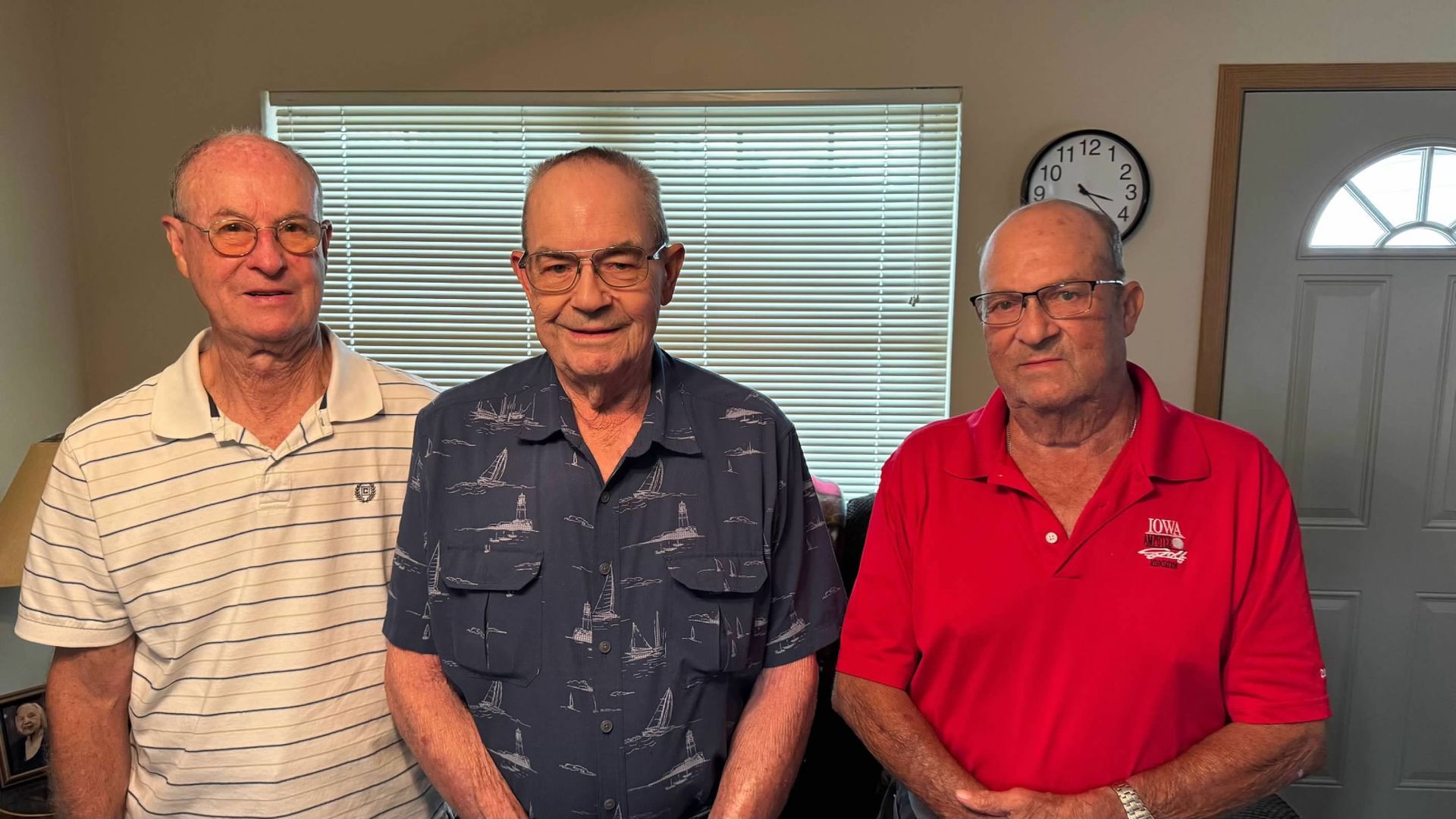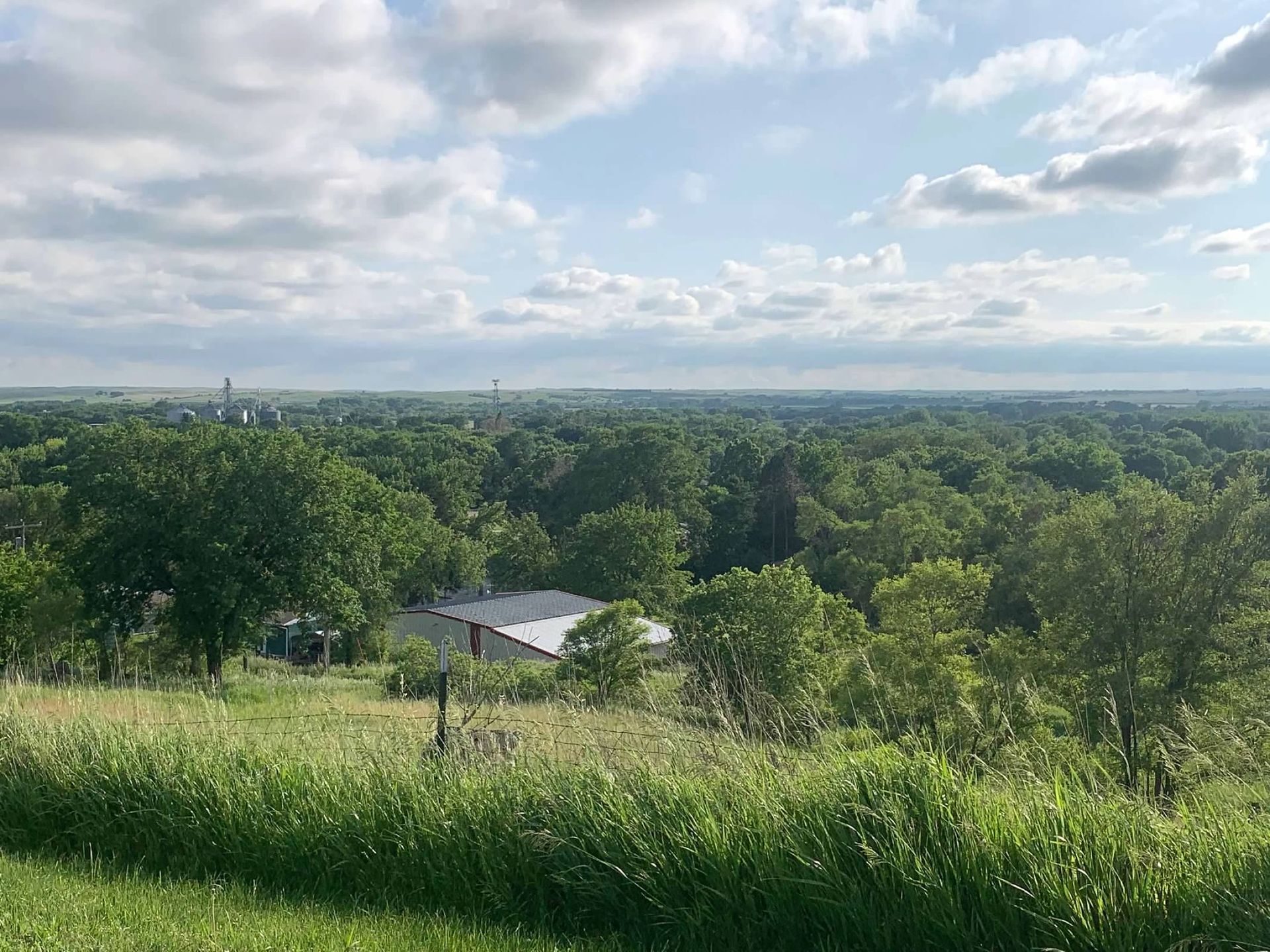Blog

I lost two uncles in twelve days last month, the second passing away hours after we buried his younger brother. Neither death was particularly surprising, as they were 79 and 84, and struggling with their health. Still, even though we sensed that the end was near, the suddenness with which it occurred was jarring. Most of don’t spend much time thinking about the end – not just the end of our lives, but of the lives around us – and that’s probably a good thing. What isn’t good is thinking we have unlimited time, and wasting the days we have with each other. Though we shouldn’t dwell in morbidity, we also shouldn’t squander opportunities to make memories with those who are important to us. Just a few short months ago, Lynda and I made a trip to Ord to see my now deceased uncles . With travel, that effort consumed most of a Saturday, but it was one of the best Saturdays I’ve had in a while. I enjoyed it so much that, as we drove back, I told Lynda that we should plan to do it again next summer. Unfortunately, there won’t be a next trip to see those two. That’s a sad fact, but I’m thankful for the memories we made on that trip, memories that will stick with me for the rest of my life, and I’m thankful that I didn’t put off the trip. Daily life often gets in the way of living life. We fill our days with have-tos and need-tos, often running at a frenzied pace that clouds the beauty around us, but how much of that do we really have to or need to do? How much will matter when we look back on our years? Coincidentally, when I returned from the first funeral, my 24-year-old daughter showed me a plastic bag of my childhood memories that she had uncovered while looking for something else. In the bag were things that I had stashed away because they were important to me at that time in my life. A lot of the memorabilia was related to various family vacations we took in the early 1980s. Back then, if you wanted to capture a memory, you could take a picture with an old camera, hope that you got it right and wait until you got the pictures back from a developer or you could buy a 20-cent postcard and grab some free brochures. I did a lot of the latter, and had loaded that bag with brochures and postcards from places like Reptile Gardens and Wall Drug in South Dakota. Also in the bag were trading cards from movies and television programs like Grease, The Dukes of Hazzard and Dallas, and obscure sports cards with no market value. While I enjoyed a few minutes of flipping through stuff I hadn’t seen in decades, it mostly just obscured more meaningful memories. Among the clutter were autographs I had collected from my sports idols, postcards a friend sent to me with notes from her travels, a letter that another friend wrote to me while undergoing treatment for leukemia and a prayer card from his funeral just a few months later. On the lighter side, I had stashed away a citation awarded to me by a Loup City policeman in recognition of my efforts with an ill-advised fireworks display on the last day of my eighth-grade year! My daughter particularly enjoyed that one. As I browsed through the contents of the bag, I created three piles on my desk: definitely keep, maybe keep and probably throw away. I also thought about how I would feel if I were to go through the bag in my golden years, which are getting closer every year. If the important things were still obscured by the junk, would I just throw the whole thing away without even looking for those treasures? That motivated me to focus on what will always matter – memories tied to people. Sadly, I hadn’t visited Ord for years, but last week, I made my third trip of the year there to celebrate my uncle’s life, like I had just a couple of weeks earlier for his younger brother’s funeral. While the last two trips were for somber occasions, I’m glad that I didn’t skip the first one. I had other things to do that Saturday, but nothing more important than making memories with loved ones. photo above, July 2025: my dad Harold on the left, his oldest brother Roger (middle), and next oldest brother Don (right)

A couple of Saturdays ago, I found myself smiling and nodding, as my eyes welled up with tears of sadness. I was among friends I hadn’t seen for a long time, and I had a beer and a Philly cheesesteak in front of me, yet I was engrossed in stories of incomprehensible agony and triumph. It was a powerful juxtaposition, the kind you don’t easily forget. Lynda and I were at a charity event that we attend almost every year. The event is called Glow Gold, and its intent is to raise money for childhood cancer research. It’s one of many events held by Sammy’s Superheroes, an organization founded by one of my former students whose son Sammy is the namesake. For most of the event, the mood was joyful, with music playing and children running around in bounce houses and having their faces painted, while adults enjoyed conversation, music, and good food and drink. The vibes were so casual that it was easy to forget the purpose behind the event, until the speakers took the stage. These brave souls are typically parents, and they are there to share their stories of going through a cancer battle with their children. As a parent, and now grandparent, I don’t even want to think about childhood cancer and what these families have experienced. I imagine that the speakers felt the same way, and would rather be sitting in the crowd with me, and not reliving their pain in front of strangers. Yet, there they were. The first speaker was a young father with several children who only briefly attended the event, as he was busy with his children’s activities that night. He reminded me of myself several years ago, when I was busy with my own young children, except that I didn’t have a four-year-old in a fight for his life, a fight that had already cost him one of his legs. Next on stage was a mother who had struggled to have children, only to have her two-year-old die in her arms as she sat outside with him on a sunny summer morning. Her description of the experience was so vivid that it was easy to imagine – too easy for an empath like me. While both stories were sad and incredibly heart-wrenching, they were also oddly uplifting. Both parents spoke of how their children inspired them to become better people. They shared how their experiences, though they wished that they hadn’t had them, enhanced their appreciation of life, love and family. They no longer take time for granted, and they’ve learned that the trivial things that challenge us really aren’t that important. They have managed to grow, despite suffering from trauma that few of us will ever experience. These families are prime examples of something I have recently begun studying, Post-Traumatic Growth. Post Traumatic Growth (PTG) is a theory, developed by psychologists Richard Tedeschi and Lawrence Calhoun, that suggests that not all reactions to trauma are negative. In fact, they conclude that mild to moderate trauma often leads to positive psychological changes, such as stronger resilience, heightened empathy, renewed appreciation for life and more meaningful relationships. PTG epitomizes the human spirit, and seeing that in these parents had me smiling and nodding. No one wants to experience trauma, yet despite our best efforts to avoid it, trauma can still find us and impart devastating effects, some of which we may never recover from. Still, like these parents who have experienced the unthinkable, we can come out on the other side as better people. PTG gives us hope that this is possible. Focused on the social aspect of the event, I hadn’t readied myself for the emotional labyrinth that my mind was suddenly navigating while listening to speakers that Saturday night. The smiles and nodding happened, when my thoughts finally caught up with my emotions. Even through the most trying times, we can grow and improve, if we’re receptive to the learning that challenges can provide.

When I was a kid growing up in Loup City, I went to Ord at least once per month to visit my grandparents and other relatives, and it wasn’t a trip that I was always eager to make. It wasn’t that I disliked seeing my relatives, but there were other things that I would have rather been doing. I sure couldn’t imagine making that trip on my own volition, but that’s exactly what I did a couple of Saturdays ago. My grandfather has been gone for more than 40 years now, and grandmother, more than 20. I can still remember them vividly, as well as their house and the heaping bowls of fudge and caramel covered ice cream I enjoyed in their kitchen as I listened to Grandpa tell stories between drags on his unfiltered Pall Mall cigarettes. Though I resisted those trips as a kid, if given the chance now, I would love to make one more visit, but time has moved on, and all I have are the memories. I’m a grandpa myself now, and that has given me a new perspective on the fleeting moments that we enjoy with loved ones. Years pass quickly these days, and with each new calendar we pin to the wall, we lose touch with people and places from our past. New people and places come into our lives, and we push aside the past to make room for them. While some of that is necessary and a part of life, I think that it’s also important to stay in touch with our roots. “How long has it been since you’ve seen your uncles?” my wife asked as we began the three-hour trip from Omaha to Ord. “It’s been years,” I replied. We don’t have the family reunions like we used to, and because travel becomes difficult or impossible for older people, we don’t have the opportunities we once had to cross paths with them. If we’re going to see the people and places from our past, we have to make an effort to do so. That’s what I was doing on that Saturday morning. My hometown of Loup City is only a 30-minute drive from Ord and just slightly off the route between Omaha and Ord, so I also took the opportunity to tour the town I hadn’t seen in more than a year. I drove the sleepy streets I once roamed on my bike. I went past the church I attended through childhood, as well as the home I grew up in and the home where my maternal grandparents lived. I stopped at my grandfather's grave and symbolically shared a beer with him. After lunch at the marina at the lake just outside of town, where I spent many summer afternoons boating with my family, I headed to Ord, driving past my aunt and uncle’s farm that I hadn’t seen in more than a decade. The Ord visit with my uncles was brief, but more rewarding than I had imagined. The laughter, smiles and stories were so familiar that it was hard to believe that it had been years since we had seen each other. I even bumped into three cousins that I hadn’t seen in years. As we headed back to Omaha, I thought about those childhood visits that I once resisted and began to appreciate why my parents insisted that we make them. Time is fleeting and waits for no one, but we can’t get so caught up in the present that we forget the past and the people and places that helped shape us into the people we are. If you have been thinking about the people and places from your past, take that as a sign that you need to visit them. Don’t just wait for the next opportunity, make that opportunity happen. You will be glad that you did.